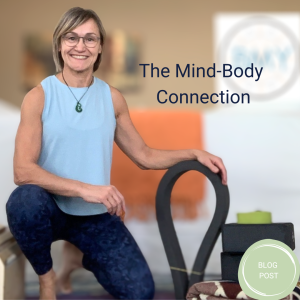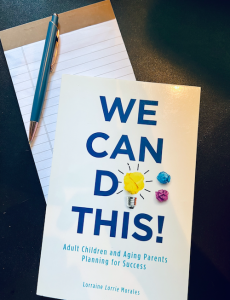by Sandra Wiebe
Midlife Transitions: How Counselling Can Help You Thrive, Not Just Survive
Midlife is often described as a period of significant transition. For many women, it can feel like standing at a crossroads—facing personal, professional, and emotional shifts that bring both challenges and opportunities. While some women embrace these changes with confidence, others may feel overwhelmed, uncertain, or even stuck. If you resonate with these feelings, know that you’re not alone.
Counselling can be an invaluable tool to help navigate this stage of life with clarity, resilience, and purpose. Let’s explore some of the common struggles women face in midlife and how professional support can make a meaningful difference.
 Common Midlife Struggles Women Face
Common Midlife Struggles Women Face
- Changing Family Dynamics
As children grow and leave home, many women experience “empty nest syndrome,” a period of emotional adjustment that can leave them feeling lost or questioning their identity. Additionally, stepping into the role of caregiver for aging parents can introduce stress and emotional strain, adding to the complexities of midlife. - Relationship Transitions
Marriages and partnerships can evolve during midlife, with some experiencing increased connection while others face separation or divorce. Whether you’re navigating relationship changes, re-entering the dating world, or simply redefining your personal identity within a long-term relationship, counselling offers a supportive space to explore your emotions and gain clarity. - Career and Work-Life Balance
Many women reach a point where they reassess their career path, either seeking a new professional direction, striving for better work-life balance, or facing challenges in the workplace. The desire for meaningful work, coupled with potential ageism in the workforce, can create stress and uncertainty. - Health and Menopause
Hormonal changes in midlife can bring unexpected challenges such as mood swings, anxiety, fatigue, and sleep disturbances. These shifts can impact emotional well-being and self-confidence, making it essential to have strategies in place for maintaining both mental and physical health. - Feelings of Invisibility and Self-Rediscovery
Many women in midlife report feeling overlooked—both personally and professionally. This can lead to a period of self-reflection and rediscovery, where women seek to reconnect with their passions, purpose, and identity beyond their traditional roles. - Coping with Multiple Stressors
Managing a combination of responsibilities—family, career, health, and personal aspirations—can feel overwhelming. Many women experience burnout, anxiety, or depression as they juggle these competing demands.
How Counselling Can Help
Counselling provides a compassionate and non-judgmental space to explore these challenges while developing tools to move forward with confidence. Here’s how it can support you:
- Emotional Processing – Gain insight into your feelings, reduce overwhelm, and find clarity during times of change.
- Stress Management – Learn healthy coping strategies to handle anxiety, burnout, and life’s uncertainties.
- Self-Exploration & Goal Setting – Define what truly matters to you in this phase of life and create a path toward fulfillment.
- Relationship Support – Navigate relationship changes with confidence, whether that’s improving communication, coping with divorce, or rebuilding self-esteem.
- Navigating Menopause with Emotional Well-being – Learn mindfulness and self-care strategies to manage the emotional aspects of menopause.
Practical Steps to Embrace Midlife with Confidence
If you’re feeling lost or uncertain about the future, there are actionable steps you can take to regain a sense of control and fulfillment:
- Seek Professional Support – Counselling can offer guidance and validation as you navigate this transition.
- Prioritize Self-Care – Whether through exercise, mindfulness, or creative pursuits, nurturing your well-being is essential.
- Redefine Personal Goals – Midlife is an opportunity to reflect on what truly brings you joy and purpose.
- Build a Strong Support Network – Surround yourself with like-minded women who uplift and inspire you.
You’re Not Alone—Support is Available
Midlife is not an end; it’s a powerful new beginning. With the right support and mindset, this stage of life can be one of the most fulfilling and empowering yet. If you’re feeling stuck or uncertain, counselling can provide the tools and encouragement you need to embrace change with confidence.
Ready to take the next step? Book a session today. Let’s navigate this stage of life together—with clarity, strength, and purpose.


 Common Midlife Struggles Women Face
Common Midlife Struggles Women Face


 If you find yourself struggling with stress, guilt, or the overwhelming emotions of care-giving, you’re not alone. Let’s find a way to balance the teeter-totter—without losing yourself in the process.
If you find yourself struggling with stress, guilt, or the overwhelming emotions of care-giving, you’re not alone. Let’s find a way to balance the teeter-totter—without losing yourself in the process.